The Pope: Called to sow seeds of hope and to build peace
61st World Day of Prayer for Vocations
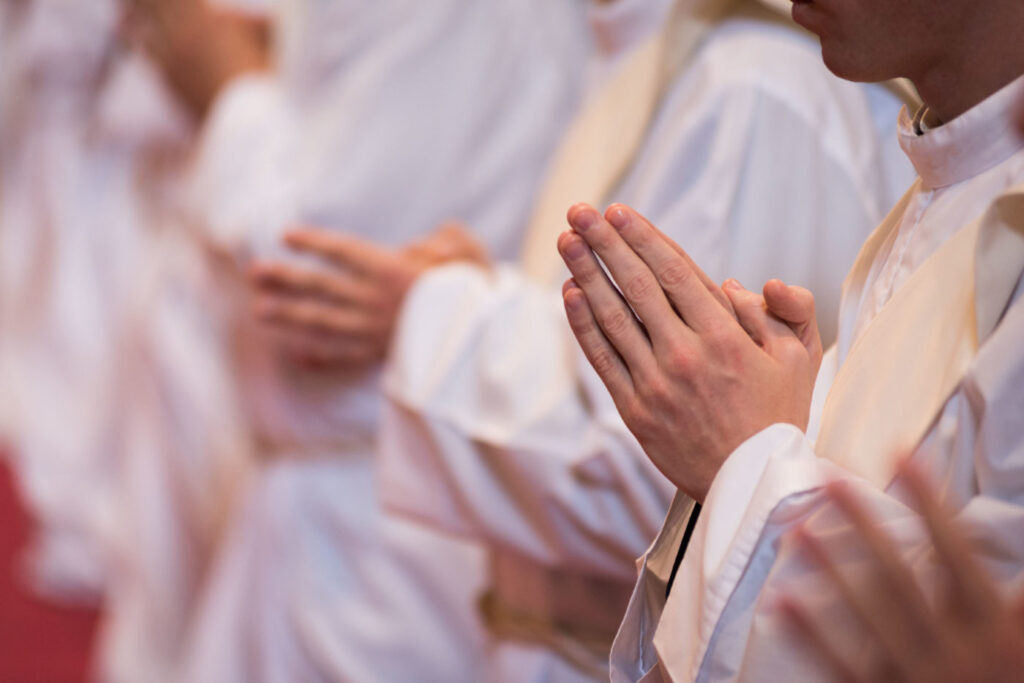
In his message for the 61st World Day of Prayer for Vocations, the Holy Father remembers that each of us, in his place, in his state of life, can be, with the help of the Holy Spirit, a sower of hope and peace.
***
Pope’s Message
Dear brothers and sisters!
Each year, the World Day of Prayer for Vocations invites us to reflect on the precious gift of the Lord’s call to each of us, as members of his faithful pilgrim people, to participate in his loving plan and to embody the beauty of the Gospel in different states of life. Hearing that divine call, which is far from being an imposed duty – even in the name of a religious ideal – is the surest way for us to fulfil our deepest desire for happiness. Our life finds fulfilment when we discover who we are, what our gifts are, where we can make them bear fruit, and what path we can follow in order to become signs and instruments of love, generous acceptance, beauty and peace, wherever we find ourselves.
This Day, then, is always a good occasion to recall with gratitude to the Lord the faithful, persevering and frequently hidden efforts of all those who have responded to a call that embraces their entire existence. I think of mothers and fathers who do not think first of themselves or follow fleeting fads of the moment, but shape their lives through relationships marked by love and graciousness, openness to the gift of life and commitment to their children and their growth in maturity. I think of all those who carry out their work in a spirit of cooperation with others, and those who strive in various ways to build a more just world, a more solidary economy, a more equitable social policy and a more humane society. In a word, of all those men and women of good will who devote their lives to working for the common good. I think too of all those consecrated men and women who offer their lives to the Lord in the silence of prayer and in apostolic activity, sometimes on the fringes of society, tirelessly and creatively exercising their charism by serving those around them. And I think of all those who have accepted God’s call to the ordained priesthood, devoting themselves to the preaching of the Gospel, breaking open their own lives, together with the bread of the Eucharist, for their brothers and sisters, sowing seeds of hope and revealing to all the beauty of God’s kingdom.
To young people, and especially those who feel distant or uncertain about the Church, I want to say this: Let Jesus draw you to himself; bring him your important questions by reading the Gospels; let him challenge you by his presence, which always provokes in us a healthy crisis. More than anyone else, Jesus respects our freedom. He does not impose, but proposes. Make room for him and you will find the way to happiness by following him. And, should he ask it of you, by giving yourself completely to him.
A people on the move
The polyphony of diverse charisms and vocations that the Christian community recognizes and accompanies helps us to appreciate more fully what it means to be Christians. As God’s people in this world, guided by his Holy Spirit, and as living stones in the Body of Christ, we come to realize that we are members of a great family, children of the Father and brothers and sisters of one another. We are not self-enclosed islands but parts of a greater whole. In this sense, the World Day of Prayer for Vocations has a synodal character: amid the variety of our charisms, we are called to listen to one another and to journey together in order to acknowledge them and to discern where the Spirit is leading us for the benefit of all.
At this point in time, then, our common journey is bringing us to the Jubilee Year of 2025. Let us travel as pilgrims of hope towards the Holy Year, for by discovering our own vocation and its place amid the different gifts bestowed by the Spirit, we can become for our world messengers and witnesses of Jesus’ dream of a single human family, united in God’s love and in the bond of charity, cooperation and fraternity.
This Day is dedicated in a particular way to imploring from the Father the gift of holy vocations for the building up of his Kingdom: “Ask the Lord of the harvest to send out labourers into his harvest” (Lk 10:2). Prayer – as we all know – is more about listening to God than about talking to him. The Lord speaks to our heart, and he wants to find it open, sincere and generous. His Word became flesh in Jesus Christ, who reveals to us the entire will of the Father. In this present year, devoted to prayer and preparation for the Jubilee, all of us are called to rediscover the inestimable blessing of our ability to enter into heartfelt dialogue with the Lord and thus become pilgrims of hope. For “prayer is the first strength of hope. You pray and hope grows, it moves forward. I would say that prayer opens the door to hope. Hope is there, but by my prayer I open the door” (Catechesis, 20 May 2020).
Pilgrims of hope and builders of peace
Yet what does it mean to be pilgrims? Those who go on pilgrimage seek above all to keep their eyes fixed on the goal, to keep it always in their mind and heart. To achieve that goal, however, they need to concentrate on every step, which means travelling light, getting rid of what weighs them down, carrying only the essentials and striving daily to set aside all weariness, fear, uncertainty and hesitation. Being a pilgrim means setting out each day, beginning ever anew, rediscovering the enthusiasm and strength needed to pursue the various stages of a journey that, however tiring and difficult, always opens before our eyes new horizons and previously unknown vistas.
This is the ultimate meaning of our Christian pilgrimage: we set out on a journey to discover the love of God and at the same time to discover ourselves, thanks to an interior journey nourished by our relationships with others. We are pilgrims because we have been called: called to love God and to love one another. Our pilgrimage on this earth is far from a pointless journey or aimless wandering; on the contrary, each day, by responding to God’s call, we try to take every step needed to advance towards a new world where people can live in peace, justice and love. We are pilgrims of hope because we are pressing forward towards a better future, committed at every step to bringing it about.
This is, in the end, the goal of every vocation: to become men and women of hope. As individuals and as communities, amid the variety of charisms and ministries, all of us are called to embody and communicate the Gospel message of hope in a world marked by epochal challenges. These include the baneful spectre of a third world war fought piecemeal; the flood of migrants fleeing their homelands in search of a better future; the burgeoning numbers of the poor; the threat of irreversibly compromising the health of our planet. To say nothing of all the difficulties we encounter each day, which at times risk plunging us into resignation or defeatism.
In our day, then, it is decisive that we Christians cultivate a gaze full of hope and work fruitfully in response to the vocation we have received, in service to God’s kingdom of love, justice and peace. This hope – Saint Paul tells us – “does not disappoint” (Rom 5:5), since it is born of the Lord’s promise that he will remain always with us and include us in the work of redemption that he wants to accomplish in the heart of each individual and in the “heart” of all creation. This hope finds its propulsive force in Christ’s resurrection, which “contains a vital power which has permeated this world. Where all seems to be dead, signs of the resurrection suddenly spring up. It is an irresistible force. Often it seems that God does not exist: all around us, we see persistent injustice, evil, indifference and cruelty. But it is also true that in the midst of darkness something new always springs to life and sooner or later produces fruit” (Evangelii Gaudium, 276). Again, the Apostle Paul tells us that, “in hope we were saved” (Rom 8:24). The redemption accomplished in the paschal mystery is a source of hope, a sure and trustworthy hope, thanks to which we can face the challenges of the present.
To be pilgrims of hope and builders of peace, then, means to base our lives on the rock of Christ’s resurrection, knowing that every effort made in the vocation that we have embraced and seek to live out, will never be in vain. Failures and obstacles may arise along the way, but the seeds of goodness we sow are quietly growing and nothing can separate us from the final goal: our encounter with Christ and the joy of living for eternity in fraternal love. This ultimate calling is one that we must anticipate daily: even now our loving relationship with God and our brothers and sisters is beginning to bring about God’s dream of unity, peace and fraternity. May no one feel excluded from this calling! Each of us in our own small way, in our particular state of life, can, with the help of the Spirit, be a sower of seeds of hope and peace.
The courage to commit
In this light, I would say once more, as I did at World Youth Day in Lisbon: “Rise up!” Let us awaken from sleep, let us leave indifference behind, let us open the doors of the prison in which we so often enclose ourselves, so that each of us can discover his or her proper vocation in the Church and in the world, and become a pilgrim of hope and a builder of peace! Let us be passionate about life, and commit ourselves to caring lovingly for those around us, in every place where we live. Let me say it again: “Have the courage to commit!” Father Oreste Benzi, a tireless apostle of charity, ever on the side of the poor and the defenseless, used to say that no one is so poor as to have nothing to give, and no one is so rich as not to need something to receive.
Let us rise up, then, and set out as pilgrims of hope, so that, as Mary was for Elizabeth, we too can be messengers of joy, sources of new life and artisans of fraternity and peace.
Rome, Saint John Lateran, 21 April 2024, Fourth Sunday of Easter.
FRANCIS
Related
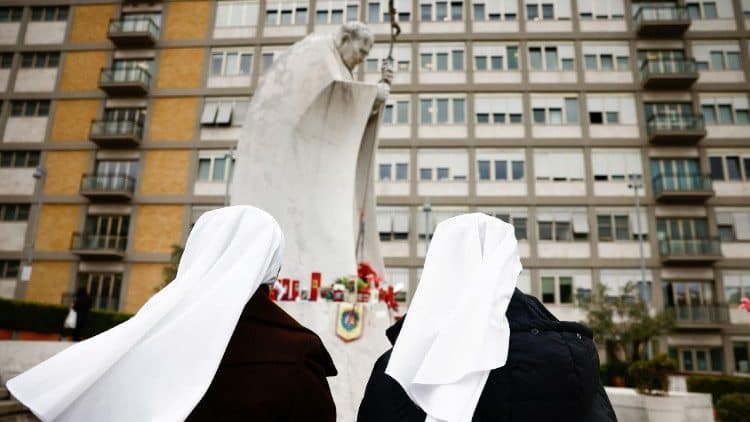
Pope Francis has continued with prescribed therapies
Exaudi Staff
14 March, 2025
1 min
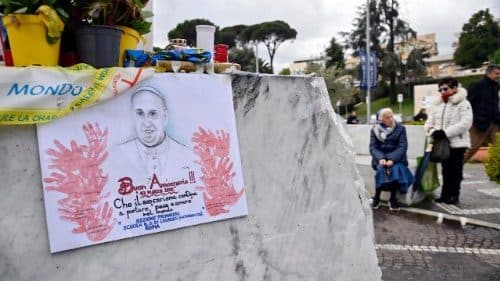
The Pope in Gemelli, condition stable
Exaudi Staff
13 March, 2025
1 min
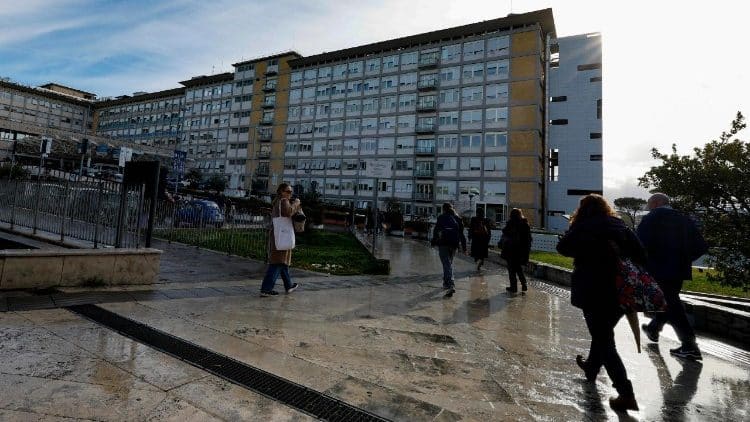
The Pope at Gemelli Hospital: A Peaceful Night
Exaudi Staff
13 March, 2025
2 min
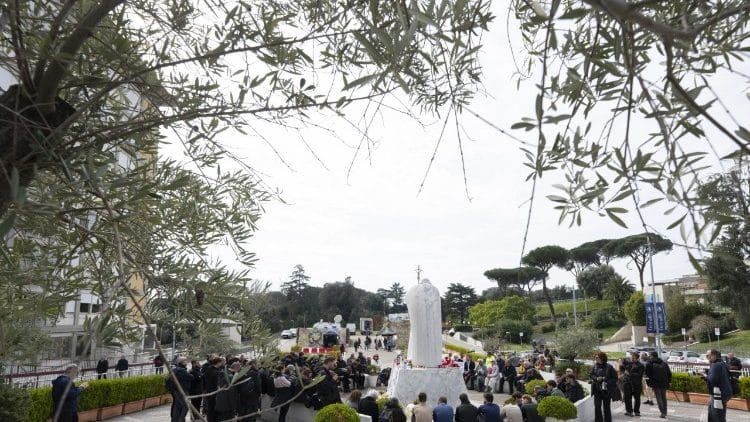
Pope at Gemelli Hospital: Peaceful Night
Exaudi Staff
12 March, 2025
1 min
 (EN)
(EN)
 (ES)
(ES)
 (IT)
(IT)

